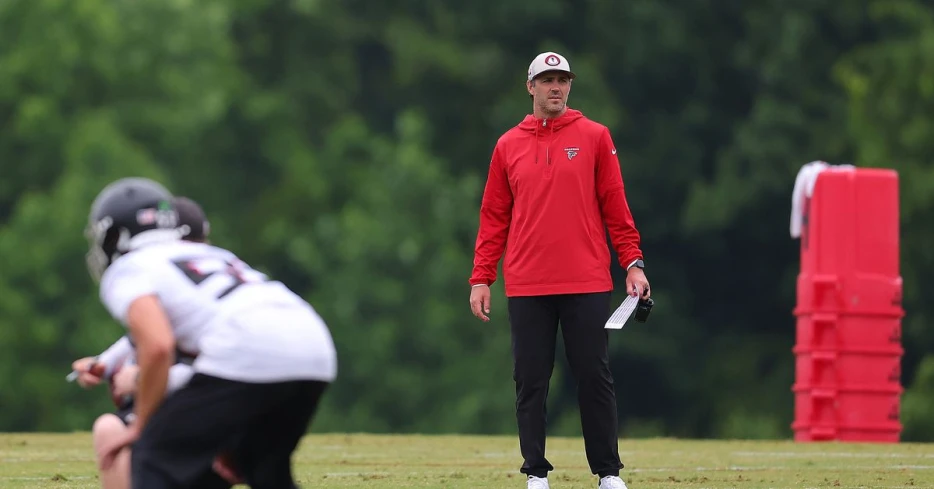
 The Falcoholic
The Falcoholic
For Zac Robinson, Raheem Morris, and Terry Fontenot, potentially quite a bit.
The signing of Michael Penix Jr means different things to different people, but the ones it affects the most are the men employed by the Atlanta Falcons, most notably those who don’t play the game.
The team’s brass and coaching staff are feeling the heat now more than ever, and there’s a feeling that this move is about more than just winning the final stretch of games. I looked at the three men I believe have the most to lose or gain from this situation and what the shift to Penix means for them.
The offensive coordinator became increasingly polarizing during Cousins’ tailspin. Robinson has experienced growing pains, but they’re typical of first-time play callers, and they aren’t tanking the offense. The Falcons are ranked 15th in EPA/play (0.014) and 8th in Success Rate (46.9%). Atlanta moves the ball and executes at an above-average rate, but opponent territory struggles and crippling quarterback play have been the group’s undoing.
The move to Michael Penix Jr should help elevate both those issues, and it’s because of the things we know he can do physically that Cousins cannot. Penix offers an obvious arm talent upgrade, but the mobility upgrade will have the most significant difference for Robinson’s scheme. I’m not saying Penix is Lamar Jackson; his game is more akin to Mattew Stafford’s–a pocket passer with enough wiggle to extend plays and execute play action.
Heading into the Raiders game, NextGenStats cited a stat that Kirk Cousins had stayed within the pocket on 99.4% of dropbacks to go along with the lowest overall scramble rate (2.2%). Atlanta has three passes outside the tackle box for the entire year. Blocking for the Statue of David is no easy feat. It requires sacrifices within the scheme, such as limiting play calls and utilizing heavier protection sets, which means more route concepts with three or fewer receivers. It even affects the run game.
The Falcons have gotten what they wanted on the ground recently, but the quarterback play still handcuffs the rushing attack. Atlanta has been unable to utilize rollout action off their outside zone runs, eliminating an essential aspect of the outside zone scheme. Backside defenders can (and do) crash runs, but the Falcons can’t make them pay for the aggressive play off the edge.
When Atlanta has tried to go to play action, the process takes far too long to be effective, and Cousins is not asked to move far off of his spot, which neutralizes the benefit of running the concept in the first place. With Penix under center, Robinson will be free to dial up these plays at will, and he should. Penix led all FBS quarterbacks in QBR (93) when utilizing play action, throwing for 14 touchdowns to one interception. Boot-action will simplify the game for Penix because it cuts the field in half, making processing reads and coverage easier on the rookie.
Zac Robinson has...